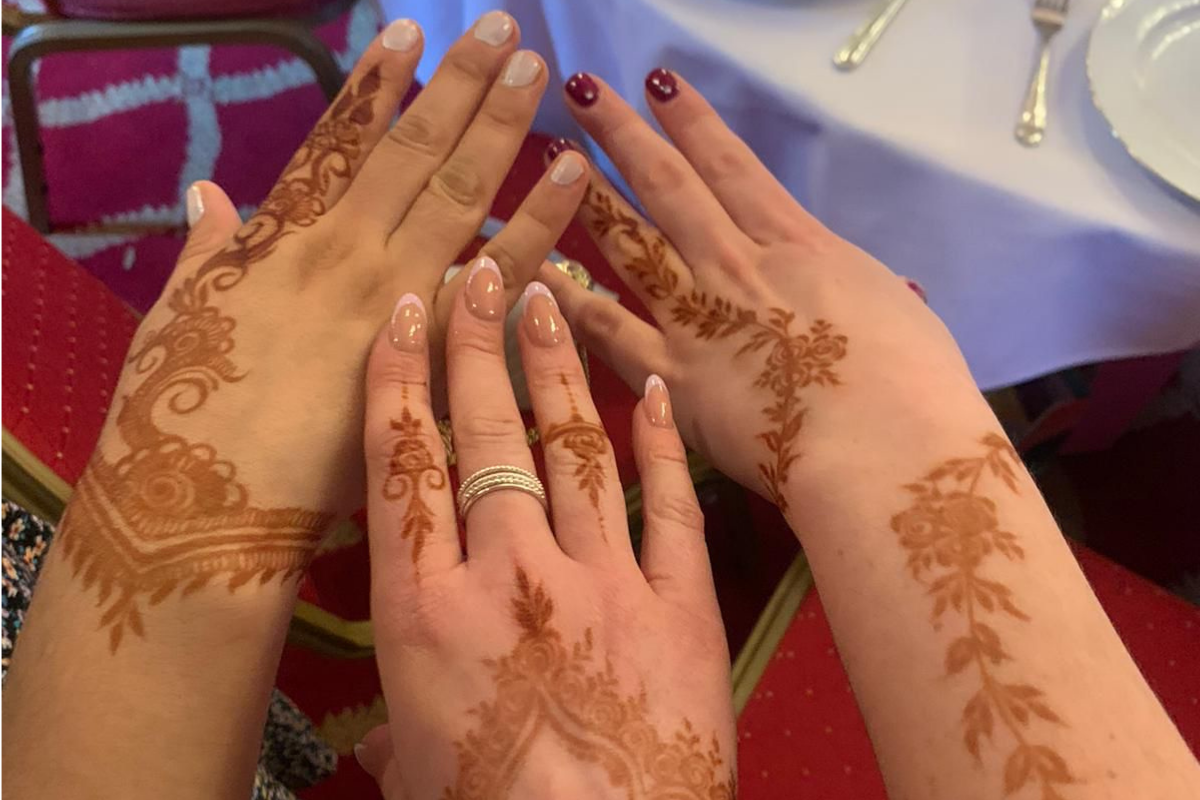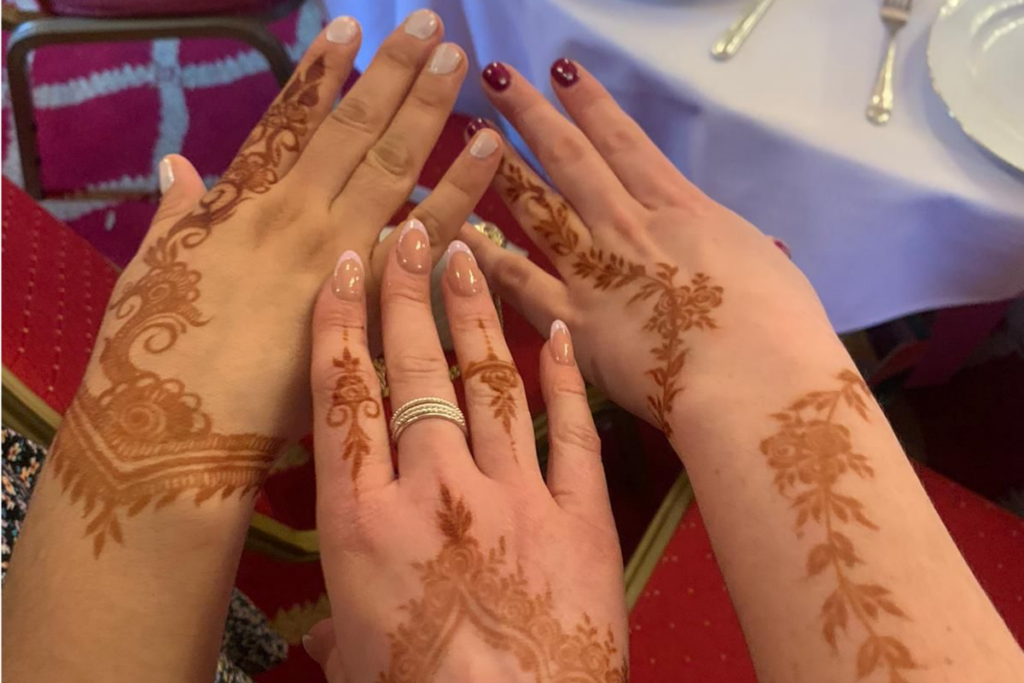
Following Mental Health Awareness Week, Savera UK is shining a light on the impact that ‘honour’-based abuse (HBA) has on the mental health of our clients and how our one-to-one support team offers them hope and practical help.
Support Team Manager Bea explains what a day in the life of the team looks like, how they support clients to navigate the mental health challenges they face as a result of HBA and how the team makes mental wellbeing a priority.
“When a phone call comes in through our national helpline, the individual is usually at high risk and it is then our role to deescalate their risk,” Bea explains. “Referrals may also come in through schools, hospitals or social services. Our first concern is their safety and if they need to be moved immediately from a dangerous or unsafe environment. So, we conduct a risk assessment and work alongside other professionals to create a safety plan for them,” she adds. “We always follow the One Chance Rule. We believe that there might be only one chance to speak to the potential person at risk or survivors, and therefore, just one chance to save a life,” she emphasises.
Those at risk of HBA will always fear for their safety, especially where their families hold extreme beliefs about these practices and are supported by some members of the wider community. Even if a client has escaped their abusive environment, families and community members will go to great lengths to try and find them. Navigating HBA means that working in a partnership with other professionals, such as the local authorities, social workers, social support, domestic abuse services and child protection services, remains crucially important.
Trauma and shame
From a mental health perspective, the team has observed how clients often struggle with trauma and shame from the various forms of abuse they have endured. Bea shares: “Some of our clients have neutralised the trauma they have experienced and accepted it as part of their culture so that they become functional in their daily living.” Others may demonstrate disassociation when they are not ready to face reality and withdraw due to fear of the repercussions of disclosure. This in turn, affects them psychologically. In addition, our clients, who are mostly women, often face the continual feeling of being disempowered due to the hierarchical nature in their family’s culture and beliefs, where the father or husband must be honoured, and end up becoming like servants to their patriarchal figures. Taken together, this may explain why some clients struggle with suicidal feelings.
Bea shares: “Many of our clients come in feeling fearful and so, we seek to create a safe space for them to relax and talk. That said, it does take time to build trust, usually two to three sessions before they start to open up. Our work is always client-led, so it depends on what they are most comfortable doing and when, that way, we don’t impose anything on them. Empathy, understanding and patience are so vital, irrespective of culture.”
Ready to advocate
There are times when a client has had their situation downplayed by other parties, prior to coming to Savera UK. So, when they do come in contact with the one-to-one Support Team, Bea and the team are quick to assure the clients that they are ready to advocate on their behalf wherever it is needed, for example ensuring they are receiving the right financial support or safety measures, accompanying them to GP appointments or meetings with immigration.
Savera UK clients are always central to the support team’s work. They ensure that they offer clients their full attention and always demonstrate that ‘I stand by you’ and ‘I believe in you’. “We do this to provide the support and validation our client needs, to empower them and give them the courage they need to speak up,” Bea explains passionately.
Reducing social isolation
Savera UK also provides weekly drop-in activities and programmes to reduce the social isolation clients face. Past sessions have included “Embodied Healing” to manage trauma and activities such as kickboxing, cricket and a clothing bazaar. The team also signposts and liaises with various agencies to provide necessary support for clients. This ranges from refuges, social services, legal services to therapy and counselling services.
“We work with services and professionals who are trained in trauma-informed practices to help our clients in their journey. ,” Bea explains. Even so, she acknowledges that there are times when the client may decide to return to their perpetrator, and sadly, the trauma circle and cycle of abuse continues. “Our role then, is to continue to be available to them. As such, there is no start and end point; our cases are never closed and remain fluid for each client.”
Improvements in mental health
When asked to share about an improvement in mental health that Bea has observed in a client, she immediately mentions a client who – after three months in communication – told her: “It was because of you that I can now do this.”
“I always believe that it only takes one person to believe in you for you to feel empowered,” Bea adds. “That is what someone did for me and I want to continue pour belief into other women as well, be it my team or our clients.”
With all that the one-to-one support team does, Bea recognises that wellbeing at the workplace is incredibly vital so that the team can continue to give their best to support Savera UK’s clients. As such, to support the team’s own mental health and wellbeing, every support worker has monthly access to clinical support, weekly check-ins, they are encouraged to take regular breaks and can look forward to a therapy room that will be made available to both support workers and clients in the near future.
“I take pride in my team and what we are doing. We are committed to change the narrative of our clients and stand up against culturally specific abuse and violence,” Bea says. “For me, every life impacted, and every person empowered is a success. My dream is that one day, one of our clients will be the next Bea or HBA support worker, because they have the lived experience and that will be so powerful!”
If you or someone you know is at risk of HBA or harmful practices, or if you need advice on these issues, you can get help here.
You can call the Savera UK national helpline on 0800 107 0726 (operates weekdays between 9am-5pm).
Interview conducted and blog written by Savera UK placement student, Debbie

